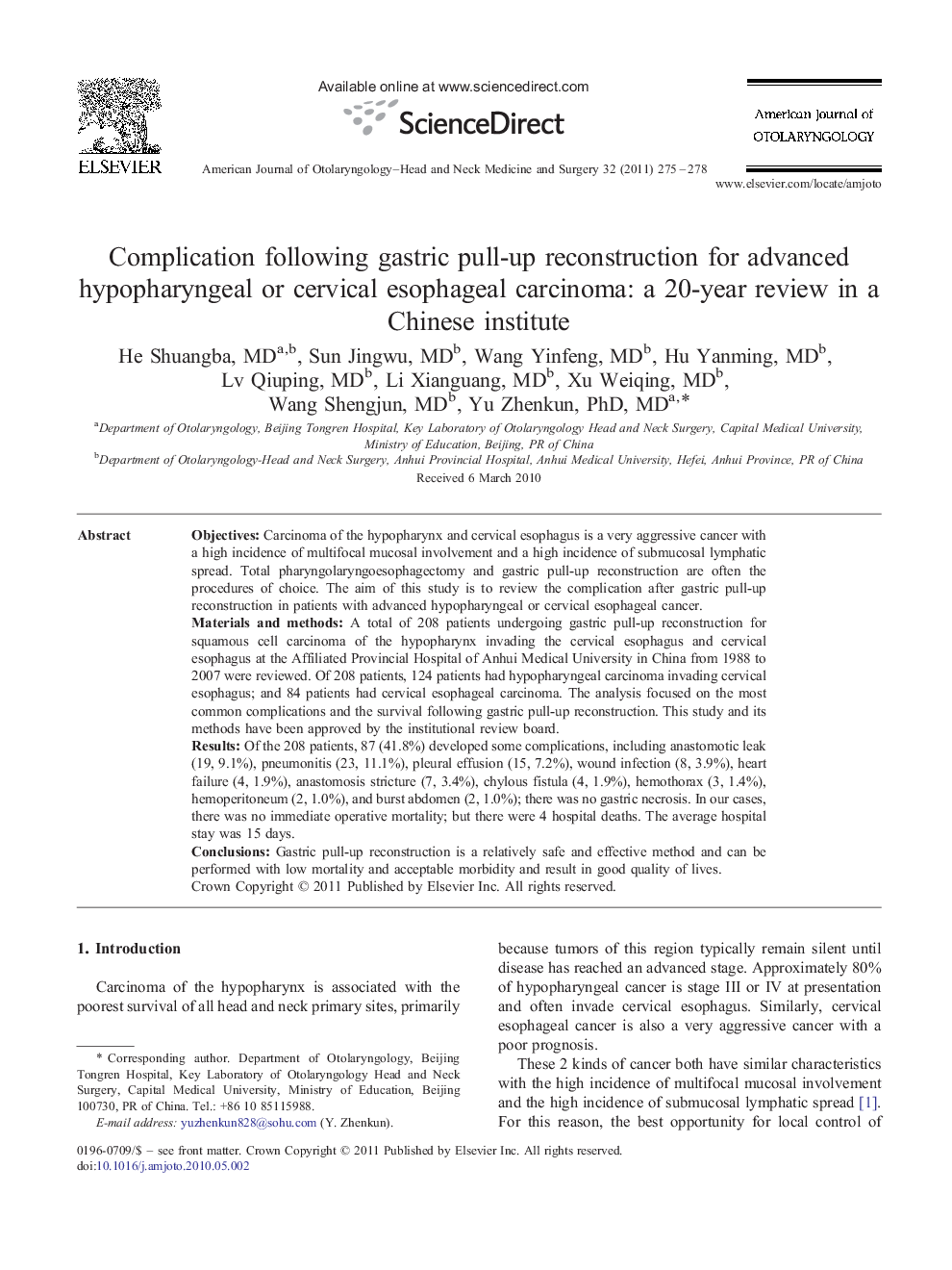| Article ID | Journal | Published Year | Pages | File Type |
|---|---|---|---|---|
| 4103958 | American Journal of Otolaryngology | 2011 | 4 Pages |
ObjectivesCarcinoma of the hypopharynx and cervical esophagus is a very aggressive cancer with a high incidence of multifocal mucosal involvement and a high incidence of submucosal lymphatic spread. Total pharyngolaryngoesophagectomy and gastric pull-up reconstruction are often the procedures of choice. The aim of this study is to review the complication after gastric pull-up reconstruction in patients with advanced hypopharyngeal or cervical esophageal cancer.Materials and methodsA total of 208 patients undergoing gastric pull-up reconstruction for squamous cell carcinoma of the hypopharynx invading the cervical esophagus and cervical esophagus at the Affiliated Provincial Hospital of Anhui Medical University in China from 1988 to 2007 were reviewed. Of 208 patients, 124 patients had hypopharyngeal carcinoma invading cervical esophagus; and 84 patients had cervical esophageal carcinoma. The analysis focused on the most common complications and the survival following gastric pull-up reconstruction. This study and its methods have been approved by the institutional review board.ResultsOf the 208 patients, 87 (41.8%) developed some complications, including anastomotic leak (19, 9.1%), pneumonitis (23, 11.1%), pleural effusion (15, 7.2%), wound infection (8, 3.9%), heart failure (4, 1.9%), anastomosis stricture (7, 3.4%), chylous fistula (4, 1.9%), hemothorax (3, 1.4%), hemoperitoneum (2, 1.0%), and burst abdomen (2, 1.0%); there was no gastric necrosis. In our cases, there was no immediate operative mortality; but there were 4 hospital deaths. The average hospital stay was 15 days.ConclusionsGastric pull-up reconstruction is a relatively safe and effective method and can be performed with low mortality and acceptable morbidity and result in good quality of lives.
